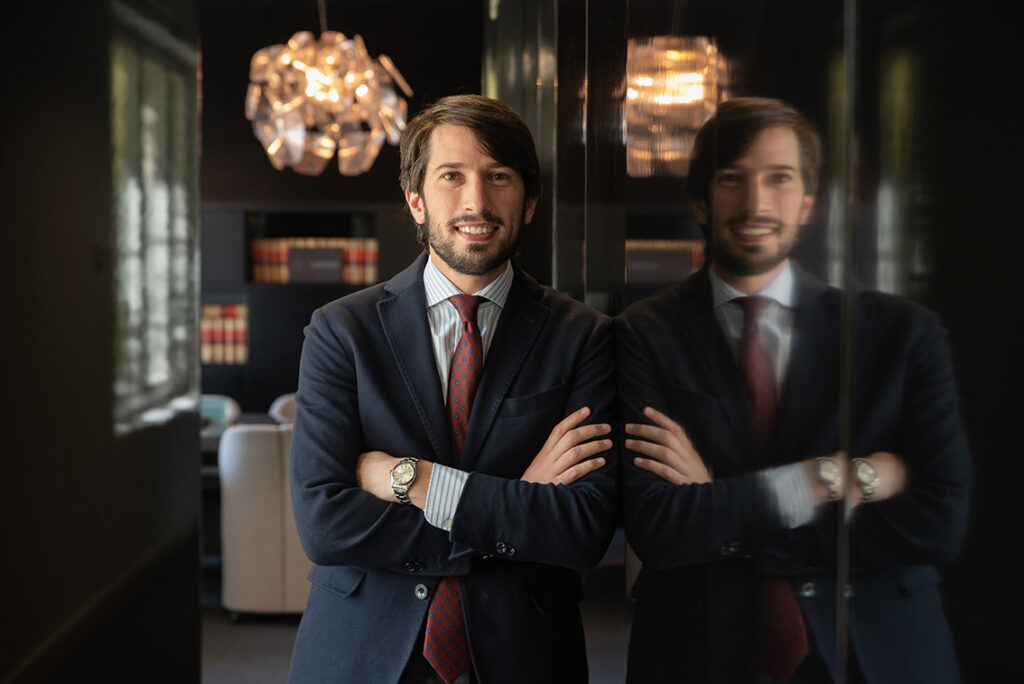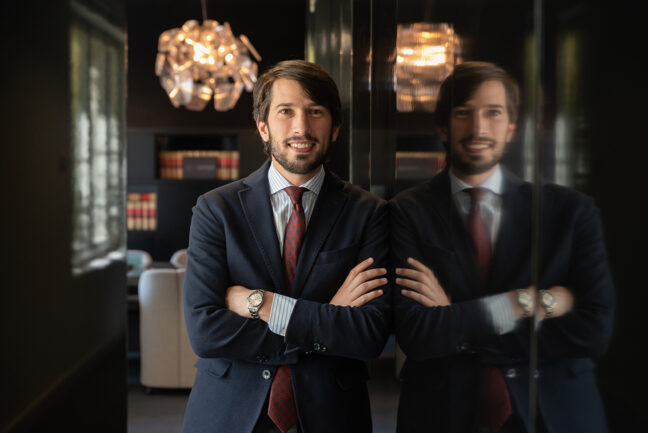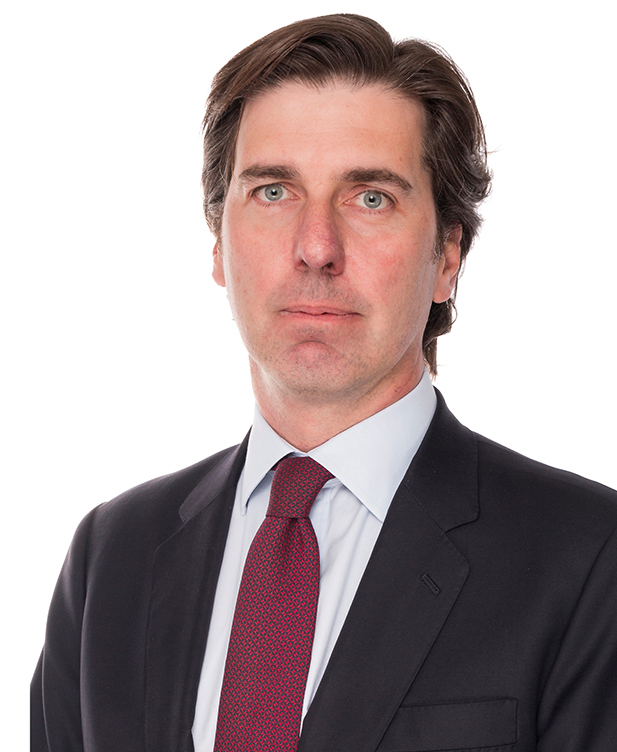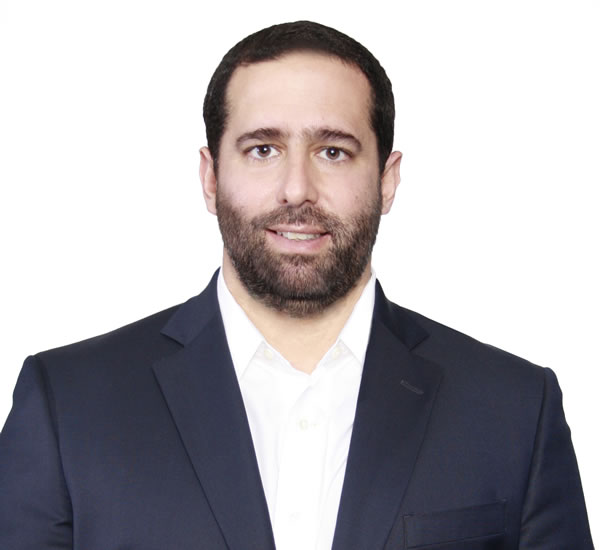Content available in English and Spanish (scroll down)
TTR DealMaker Q&A with UNE Asesores Financieros Founding Partner and CEO Ian Fry Cisneros
Ian Fry Cisneros – UNE Asesores Financieros
Founder and current Executive Director of UNE Asesores. Bachelor of Business Administration at Universidad del Pacífico. He holds an MBA from the London Business School. He has also obtained a trader certification from the Financial Services Authority in Great Britain. He previously held the position of Commercial Strategy Manager of investment products at Banco de Crédito. He has also held the position of associate at the structured products desk at Bank of America in London, and worked as senior analyst and head of investment products at Citibank.
.
TTR: What will be the most relevant drivers for the consolidation of the M&A market in the medium and long term for the country and Latin America?
I.F.: We see an important increase of cross-border transactions between counterparts in Latin America. This implies a high level of interactions among advisors, as a result of remote work and increase in the adoption of digital tools. At UNE, we are currently serving companies in Perú and have recently extended them to Colombia and Brazil. For example, in Brazil we are attending a sell- side M&A in the airport F&B segment.
At this point in time, it´s necessary carrying out a greater level of detail when constructing a valuation model. This would make them much more flexible, accurate and easier to update regarding the changing perspectives and expectations in the region.
Furthermore, we see a higher level of creativity in the structures proposed by advisors. Earn outs are a helpful tool to possible to close gaps between the expectations of buyers and sellers.
TTR: Which market segments present the greatest opportunities for international investors in 2021, and why?
I.F.: From our perspective the greatest opportunities for international investors are the sectors that have managed a positive outcome during 2020 and those who have experienced post-pandemic growth. Sectors such as IT, industrial, logistics and health are experiencing robust M&A activity. In particular, the corporate health segment is requiring greater demands and protocols in order to minimize health and safety risks at work.
TTR: What will be the main impacts on the M&A market in Peru of the new antitrust legislation?
I.F.: The new antirust legislation in Perú impacts directly on the M&A market by extending the close transactions processes, as there would be a waiting window for the regulator’s decision. However, we believe that this law would put foreign companies, with little or no presence in Peru, in a better position to acquire companies compared to the local players that already have a significant presence in the country.
TTR: How will the current political environment in Peru affect the dynamics of the M&A market?
The political electoral situation generated a greater uncertainty in the local market, particularly affecting large transactions over US$ 300 million and those sectors, such as mining and infrastructure, that would have a negative outcome depending on the electoral result. However, we continue to see dynamism in the segment of medium-sized companies thanks to the liquidity and interest of investment funds. Thus, we could see a period where some entrepreneurs decide to pursue a liquidity event by selling their companies in order to migrate to more traditional investment alternatives.
TTR: What will be the greatest challenges for UNE in its M&A advisory work in Perú in 2021?
I.F.: UNE´s greatest challenges is to close the transactions that are in the pipeline by normalizing the atypical results of those companies affected by the pandemic during 2020. These normalized
results would be the basis for projections and a better and more accurate valuation of these companies.
In addition, we seek to increase our presence at the regional level and strengthen the alliances already established with other boutiques in Latin America. We are currently serving clients in Perú, Colombia and Brazil, so our next milestone is to begin serving clients in Ecuador and Bolivia.
TTR: Following the previous answer, what do you think will allow UNE to successfully carry out this greater regional presence?
I.F.: Unlike other investment banking boutiques that cover various financial services, UNE’s pillar, and what has allowed it to differentiate itself, is its focus on advising on the purchase or sale of medium-sized companies valued between US$ 10 million and US$ 100 million. Our services rely on advising and representing the owners throughout the sale process of their companies in order to achieve better terms for them. Extensive experience and professionalism in selling medium sized companies makes us have a very important and differentiating attribute compared to other players in the market. Our typical client has extensive knowledge of the industry in which he develops from his years leading his business, but when evaluating to incorporate a partner or fully sell his company, he requires an experienced financial advisor.
Likewise, when we are on the buyer’s side, the experience of serving family businesses helps us prospect and find good targets as well as conducting negotiations in the best way.
TTR: Are they typically family businesses?
I.F.: Yes, they are companies that have been developed in a personal way. Ventures that have been successful in recent years and that today reach a significant size. Our objective is to advise those Latin American entrepreneurs, owners of successful medium-sized companies, who want to sell their company to a larger player in the sector or perhaps incorporate a strategic partner.
TTR: Usually who are the buyers of the companies that UNE advises?
I.F.: The buyers vary depending on each company and industry, they are economic groups or regional private equity funds. There is a strong appetite in the Latin American market and we perceive interest from capital to invest in the region. Thus, we survey the market and get in touch with the natural buyers for each company that we advise.
Notwithstanding this, we serve more sophisticated corporate clients when they are interested in acquiring targets in this segment related to family or medium-sized businesses.
TTR: So, do you also advise on the buy-side of companies?
I.F.: Yes, we advise foreign companies that want to enter Peru through the purchase of a local ventures, as well as Peruvian groups interested in acquiring another company or selling a division or an asset in their portfolio. Usually in these cases the target is a family or medium-sized company, where our main expertise lies.
TTR: How has transactional activity been at UNE during this year?
I.F.: So far this year we have closed four transactions, the most importants involve two of Peru’s leading economic groups, Alicorp and Aceros Arequipa. In the first one, we advised Vegetalia (a family company with more than 50 years of experience in the oil industry) in the sale to Alicorp. In this case, the owners had never gone through a sale process and after a detailed market analysis and a hard negotiation, it was successfully sold to Alicorp. In the second case, we advised several second and third generation family groups in the sale of COMFER (a company with more than 30 years of experience, dedicated to the commercialization of steel products) to Aceros Arequipa.
UNE’s advisory adds value to these families providing expertise, technical knowledge and a network of contacts in the region.
Spanish version
Ian Fry Cisneros – UNE Asesores Financieros
Fundador y actual Director Ejecutivo de UNE Asesores. Bachiller en Administración de Empresas en la Universidad del Pacífico. Cuenta con un MBA del London Business School. Asimismo, ha obtenido la certificación de trader del Financial Services Authority en Gran Bretaña. Fue gerente de Estrategia Comercial de productos de inversión en el Banco de Crédito. Asimismo, ocupó el cargo de asociado en la mesa de productos estructurados en Bank of America en Londres. Además, fue analista senior y jefe de productos de inversión del Citibank.
TTR: ¿Cuál es la tendencia actual en el servicio de asesoría financiera en LatAm?
I.F.: Vemos un mayor nivel de transacciones cross border, contando con contrapartes en otros países e interacción de asesores basados en diferentes países, producto del incremento del trabajo remoto y la adopción de mayores herramientas digitales. En UNE ya estamos atendiendo a empresas en Colombia y Brasil, por ejemplo, en Brasil estamos atendiendo a un cliente en el segmento food & beverages en aeropuertos.
Vemos también necesario el realizar un mayor nivel de detalle al armar los modelos de valorización, muchos más flexibles que permitan actualizar fácilmente las perspectivas y expectativas cambiantes en la región.
Por otro lado, vemos un mayor nivel de creatividad en las estructuras por parte de los asesores. Por ejemplo, los earn outs permiten cerrar brechas entre las expectativas de compradores y vendedores. Ahí, el rol que de los asesores financieros es clave
TTR: ¿Cómo podrían resumir el primer semestre en la actividad de M&A en el Perú?
I.F.: Durante el primer trimestre en Perú, entró en vigencia la ley de control de fusiones y adquisiciones, lo cual aceleró la actividad de los procesos transaccionales que estaban próximos a cerrar.
El segundo trimestre se caracterizó principalmente por la incertidumbre electoral de las elecciones presidenciales. Esto generó una mayor incertidumbre y una alta aversión al riesgo en el mercado local, afectando en particular las transacciones grandes, superiores a US$ 300 MM, y aquellas que se verían muy afectadas en función al resultado electoral, como lo son sectores ligados a minería o infraestructura
No obstante, en el rubro de empresas medianas, continúa el dinamismo de las transacciones de M&A. Vemos que persiste mucha liquidez a nivel global, niveles de tasas bajas e interés en invertir en mercados emergentes. En ese sentido, en UNE seguimos atiendo muchos empresarios que están activamente buscando la venta de sus empresas.
TTR: ¿Cuáles serían los sectores que podrían ofrecer las mayores oportunidades en Perú a los inversores internacionales en 2021 y por qué?
I.F.: Desde nuestra perspectiva, indudablemente los sectores que se han visto beneficiados y han experimentado un crecimiento post-pandemico. Sectores como el de tecnología y desarrollo, industrial, logística y aquellos que han sido beneficiados por los efectos de pandemia, como lo es el sector salud. En particular, el segmento de salud corporativo, está requiriendo mayores exigencias y protocolos con el objetivo de minimizar riesgos de salud y seguridad en el trabajo. Así, países como México, Brasil, Chile y Colombia podrían ser los mayores interesados por la actividad que han tenido en las transacciones de M&A durante el primer trimestre del 2021.
TTR: ¿Cuáles serán los principales impactos que se podrán generar en el mercado M&A de Perú con la entrada en vigor de la nueva ley sobre control previo en el país?
I.F.: Un mayor tiempo en realizar el cierre de la transacción pues habría una ventana de espera de la decisión del regulador sobre la transacción. Sin embargo, creemos que esta ley pondría a compañías del exterior, con poca o nula presencia en Perú, en mejor situación para adquirir empresas, a comparación de compañías locales que ya cuentan con una presencia significativa en el Perú.
TTR: ¿En qué medida afectará el actual entorno político de Perú a la dinámica del mercado de Fusiones y Adquisiciones?
I.F.: La coyuntura electoral generó una mayor incertidumbre en el mercado local, afectando en particular las transacciones grandes superiores a US$ 300 MM o ligadas al resultado electoral como aquellas en los sectores de minería o infraestructura. Sin embargo, continuamos viendo dinamismo en el segmento de empresas medianas gracias a la liquidez e interés de fondos de inversión, así, podríamos ver un periodo donde algunos empresarios decidan realizar un evento de liquidez vendiendo sus compañías para así migrar a alternativas de inversión mas tradicionales y líquidas, lo cual generaría un mayor dinamismo en el mercado.
TTR: ¿Cuáles serán los principales desafíos en términos de transacciones de M&A en Perú durante 2021 para UNE Asesores?
I.F.: Concretar las transacciones que están en el pipeline, normalizando los resultados atípicos que han tenido muchas compañías que han sido afectadas por la pandemia, para que estos sean las bases de las proyecciones.
Además, incrementar nuestra presencia a nivel regional y afianzar las alianzas ya establecidas con otras boutiques de Latinoamérica. Actualmente estamos atendiendo a clientes de Colombia y Brasil, así, nuestro siguiente hito es empezar a atender clientes en Ecuador y Bolivia.
TTR: En esa línea, ¿qué creen que les permitirá realizar acabo de forma exitosa esta mayor presencia regional?
I.F.: A diferencia de otras boutiques de banca de inversión que abarcan varios servicios financieros, el pilar de UNE, y lo que le ha permitido diferenciarse, es su enfoque en la asesoría de compra o venta de empresas medianas valoradas entre US$ 10 millones y US$ 100 millones. Lo que hacemos es asesorar y representar a los dueños durante todo el proceso de venta de sus compañías a fin de lograr mejores términos para ellos. Nuestra amplia experiencia y expertise en vender empresas medianas, hace que poseamos un atributo muy importante y diferenciador respecto a otros jugadores del mercado. Nuestro cliente típico posee amplio conocimiento de en la industria en la que se desarrolla por sus años liderando su negocio, pero que al momento de evaluar incorporar a un socio o de vender totalmente su empresa, requiere de un asesor financiero con experiencia.
Asímismo, cuando estamos del lado del comprador, la experiencia de atender a empresas familiares, nos ayudar a prospectar y encontrar buenos targets como también conducir las negociaciones de la mejor forma.
TTR: ¿Típicamente son empresas familiares?
I.F.: Sí, son empresas que se han desarrollado de manera personal. Emprendimientos que en los últimos años han sido exitosos y que hoy alcanzan un tamaño relevante. Nuestro objetivo es asesorar a esos empresarios latinoamericanos, dueños de empresas medianas exitosas, que quiere vender su compañía a un jugador más grande del rubro o quizá incorporar algún socio estratégico.
TTR: ¿Usualmente quienes son los compradores de las empresas que asesora UNE?
I.F.: Los compradores varían dependiendo de cada empresa e industria, son los grupos económicos o fondos de private equity regionales. Existe mucha liquidez en el mercado latinoamericano y percibimos interés del capital para invertir en la región. Así, sondeamos el mercado y nos ponemos en contacto con los compradores naturales de cada empresa que asesoramos.
Sin perjuicio de ello, atendemos a clientes corporativos más sofisticados cuando están interesados en adquirir targets de este segmento relacionado a la empresa familiar o de tamaño medio.
TTR: ¿Entonces, asesoran también en la compra de empresas?
I.F.: Sí, asesoramos a empresas extranjeras que quieren entrar al Perú a través de la compra de una empresa local, así como a grupos peruanos interesados en adquirir una compañía o vender alguna división o empresa de su portafolio; usualmente en estos casos el target es una empresa familiar o de tamaño medio, donde está nuestro expertise principal.
TTR: ¿Cómo ha estado la actividad transaccional en UNE durante el año?
En lo que va de este año hemos cerrado cuatro transacciones, siendo las más importantes las que involucran a dos principales grupos económicos del Perú como lo son Alicorp y Aceros Arequipa. En la primera, asesoramos a Vegetalia (empresa familiar con +50 años de experiencia en la industria oleoginosa) en la venta a Alicorp. En este caso, los dueños nunca habían pasado por un proceso de venta y luego de analizar el mercado y negociar con Alicorp se vendió exitosamente. En cuanto a la segunda, asesoramos a varios grupos familiares de segunda y tercera generación en la venta de COMFER (empresa con +30 años de experiencia, dedicada a la comercialización de productos derivados del acero) a Aceros Arequipa.
La asesoría de UNE a estas familias, les agrega valor pues brindamos expertise, conocimiento técnico y una red de contactos en la región.









